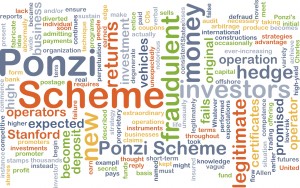Greed is often a necessary component to ethics scandals that involve fraud. In case after case, those people whose common sense is overruled by big promises and a lack of due diligence, are vulnerable to any number of schemes, scams and fraudulent practices.
 We don’t have to go back to Bernie Madoff to find a good illustration of unethical investment practices. Just the other day, Frank Enrique Lleras, who is only 30 years of age (and now facing up to 40 years in prison) was found guilty of securities fraud and wire fraud in a federal court in Charlotte, NC.
We don’t have to go back to Bernie Madoff to find a good illustration of unethical investment practices. Just the other day, Frank Enrique Lleras, who is only 30 years of age (and now facing up to 40 years in prison) was found guilty of securities fraud and wire fraud in a federal court in Charlotte, NC.
Joe Marusak, writing for the Charlotte Observer (February 10, 2016) in an article entitled: “Charlotte man admits to $3 million investment fraud scheme,” we hear how Lleras (apparently with roots to the Dominican Republic) would travel down to the country and convince medical professionals to invest with his company, Optimum Property Investments LLC.
“…he induced his victim investors by promoting Optimum as a real estate investment company that made money by purchasing distressed and/or foreclosed real estate in Mecklenburg County and elsewhere, and then reselling and/or leasing the properties.”
His scam involved setting up LLC’s for each investor, they would wire money into the accounts, and instead of legitimately purchasing properties with their money, he sent them fake deeds, fake tax receipts and even fictitious bank account statements.
“Lleras admitted in court that he instead used the money to pay other debts of Optimum, to buy property titled to the firm and not the investors, to fund other business ventures and support his lifestyle.”
The scheme Lleras used does have parallels to the Madoff case in that he developed an entire set of papers and forged documents to make investors believe he was actually earning them huge returns.
Supporting a lifestyle
The money that Frank Enrique Lleras collected for Optimum went to pay off his personal and business debts, but along the way he bought fancy gifts for himself such as jewelry. He was a crook, and his investors were more than willing to hand him their money.
As we examine this case of fraud, it is terribly easy for us to believe that these were unsophisticated investors living thousands of miles away – and in a different country where a different language is spoken.
In reality, those are not valid judgments. If we evoke the name of “Madoff” just one more time, we will see that all of his investors were educated, spoke the same language and took pride in the fact that they were somewhat sophisticated in understanding how “Wall Street” worked. They didn’t. During the period in which the stock market was shaky and then turned sharply downward, Bernie Madoff’s “gluttonous investors” were ecstatic when reaping double-digit returns on paper.
Most investors these days have globalized portfolios. We have funds or equities in international companies. We probably can’t speak the language of the countries where these companies do business, and we sure as heck have not visited the companies, but what we do have is due-diligence.
Believe it or not (I am being facetious), even the Dominican Republic has legitimate, international financial advisors and investment companies. The physicians who were suckered into investing with Lleras were not stupid people, they were greedy.
Certainly the connections between the Dominican Republic and the Greater Miami Area and its financial community (about a 2 hour flight) are extensive. There are hundreds, thousands of legitimate, recognized and bi-lingual financial experts in South Florida. So why choose a flimflam man from Charlotte? Again, greed.He promised them huge returns.
What the unethical want
Unethical people want you to believe their façades and half-truths. What scares them is due-diligence. And yes, I have been to Lleras’ website; it’s still up! It is impressive – to a point. If you take your time with it, the website is a façade. They mention partners and performance, but you never quite know the “who’s” or “what’s.”
Lleras knew that most of his client (actually, “marks”) would never make it to Charlotte. They would not understand a legitimate deed from a phony or even a fictitious tax receipt. They were blindly investing with a man they hardly knew. Lleras ate that stuff up!
Ethical safeguards should be in place at investment companies large and small. Unfortunately, it has rarely happened. As Lleras faces jail and his victims face bankruptcy it is impossible to not wonder how greed and poor ethics have shaped the downfall of so many people and how good ethical training could have stopped it.



It’s amazing, the extent to which a person would go to pull off fraud. Surely there’s at least a small part of these conmen that understand the rather high possibility of them being caught. In any case, at least this one was stopped sooner rather than later.
Chuck, I’m available whenever you want so we can chat and get true facts.
Happy to connect. I can be reached at 828.244.1400 or chuck@gallagher.pcgdev.com
I am a Víctim of The of The fraud jhon can help me